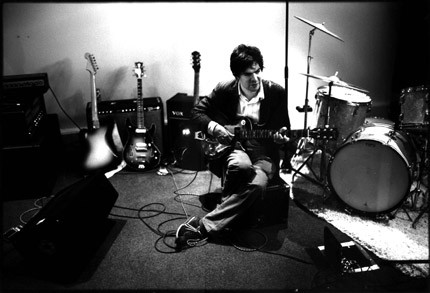“Everybody’s Gotta Learn Sometime” is a song that resonates across generations, not just for its poignant melody but also for its chameleon-like ability to transform across genres and interpretations. Originally crafted by The Korgis, a band emerging from the remnants of the 70s prog-rock scene, the song defied expectations in 1980. Perhaps slightly out of sync with the burgeoning new wave aesthetic, The Korgis, with their roots in a different era, surprisingly delivered a hit that transcended their image. While “Everybody’s Gotta Learn Sometime” climbed the charts (reaching number 5 in the UK and 18 in the US) and continues to grace radio airwaves, the creators themselves often fade into the background, overshadowed by the song’s numerous and varied covers. This adaptability is a testament to the song’s core strength: a raw emotional vulnerability that invites personal connection and reinterpretation.
The song’s inherent flexibility makes it ripe for cover versions, each artist imbuing it with their unique style. From Baby D’s breakbeat house rendition to Yazz’s adult-contemporary dance-pop take, and even Italian rock singer Zucchero’s dramatic interpretation, “Everybody’s Gotta Learn Sometime” proves to be a remarkably blank canvas. It’s a song that hints at a path John Lennon might have explored for Double Fantasy – a blend of introspection and melodic beauty – had he not consciously looked back to his musical past. This inherent openness paved the way for Beck’s deeply moving cover, created in collaboration with Jon Brion for the soundtrack of the 2004 film Eternal Sunshine of the Spotless Mind.
Beck’s version strips away the original’s 80s synth-pop sheen, opting for a raw, emotionally direct approach. The cover begins intimately, with Beck’s voice, imbued with a profound sense of melancholy, accompanied by a simple electric piano. Gradually, bass and electric guitars weave their way into the arrangement, almost imperceptibly at first, before drums join in at the chorus. The drum sound is deliberately muffled and dampened, evoking a 1970s sonic aesthetic. Gone are the signature elements of The Korgis’ original – the echo-laden piano and vocals, the electric sitar riff, and the icy synth hook. In their place, Beck and Brion introduce strings, adding a layer of cinematic pathos. The playful, ironic persona often associated with Beck is nowhere to be found here. Instead, he delivers a remarkably earnest performance, sounding utterly invested in the song’s emotional core. This sincerity is what makes Beck’s rendition so compelling; he taps into the song’s inherent vulnerability and amplifies it.
 Jon Brion, music producer, pictured in a contemplative pose, highlighting his role in Beck's cover of 'Everybody's Gotta Learn Sometime'.
Jon Brion, music producer, pictured in a contemplative pose, highlighting his role in Beck's cover of 'Everybody's Gotta Learn Sometime'.
However, the production choices, particularly by Jon Brion, introduce a contrasting element to Beck’s otherwise masterful interpretation. While the first two and a half minutes of Beck’s cover are powerfully restrained and emotionally resonant, the extended instrumental coda that follows feels somewhat at odds with the song’s established mood. It’s in this extended outro that Brion’s signature style, often characterized by a maximalist approach, becomes apparent. Listeners familiar with Brion’s work with artists like Aimee Mann and Fiona Apple might recognize familiar sonic textures and instrumental flourishes. The coda becomes a showcase of studio experimentation, incorporating a wide array of analogue keyboards, guitar pedals, and almost carnival-esque sound effects. While these elements might be intriguing in isolation, they arguably detract from the focused emotional intensity of Beck’s vocal performance and the song itself. The coda risks overshadowing the delicate balance established in the preceding minutes, potentially diluting the intended mood.
Despite the debate surrounding the extended instrumental section, Beck’s interpretation of “Everybody’s Gotta Learn Sometime” remains a standout cover. His vocal delivery is undeniably powerful, carrying the emotional weight of the lyrics with conviction and vulnerability. Even if one finds Brion’s instrumental coda somewhat redundant or stylistically divergent, it doesn’t entirely negate the strength of Beck’s performance. Perhaps, for listeners unfamiliar with Brion’s broader discography, the coda might even be perceived as charming or creatively compelling. However, for those seeking a more cohesive and emotionally consistent experience, the extended outro might feel somewhat disruptive to the otherwise melancholic and introspective atmosphere established by Beck’s vocals. Ultimately, Beck’s reading of “Everybody’s Gotta Learn Sometime” stands as a testament to the song’s enduring power and its capacity to evoke profound emotion, regardless of stylistic variations in its interpretations.